Iran
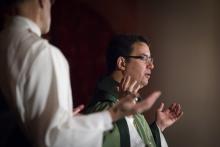
The U.S. Catholic bishops have welcomed the Obama administration’s tentative agreement aimed at limiting Iran’s nuclear ambitions, and their top spokesman on international affairs bluntly warned Congress against doing anything to undermine it.
The bishops “oppose efforts that seek to undermine the negotiation process or make a responsible multi-party agreement more difficult to achieve and implement,” Bishop Oscar Cantu, chairman of the bishops’ Committee on International Justice and Peace Committee, wrote to House and Senate lawmakers on April 13.
“The alternative to an agreement leads toward armed conflict, an outcome of profound concern to the Church,” said Cantu, who heads the Diocese of Las Cruces, N.M.
The warning — and accompanying support in a letter of commendation that Cantu sent last week to Secretary of State John Kerry — follow a thumbs-up from Pope Francis to the proposed accord, and coincides with an endorsement on April 13 by a group of largely liberal mainline Protestant leaders.
Diplomats from the U.S. and six world powers meeting in Switzerland earlier this month unveiled the framework of what could be an historic accord to inspect Iran’s growing nuclear program and prevent it from developing a nuclear weapon.
1. ‘A Rape on Campus:’ What Went Wrong?
Columbia University’s Journalism school released its report detailing the journalistic failures of Rolling Stone’s viral story ‘A Rape on Campus,’ which initiated, and later may have stifled, an honest conversation about the prevalence rape on college campuses. Read the full report. “[Writer Sabrina Rubin] Erdely and her editors had hoped their investigation would sound an alarm about campus sexual assault and would challenge Virginia and other universities to do better. Instead, the magazine's failure may have spread the idea that many women invent rape allegations.”
2. The Courage of Bystanders Who Press ‘Record’
“Despite the fact that the world can now see Eric Garner being killed by an illegal chokehold — despite the fact that New York City Police Department banned chokeholds years ago — film of the incident did not result in the officer, Daniel Pantaleo, being charged. But thanks to the efforts of Ramsey Orta, who filmed Garner’s death, we know.”
3. Hope but Verify: The Iran Nuclear Framework
“House Speaker John Boehner recently said this about the broader instability in the Middle East: 'The world is starving for American leadership. But America has an anti-war president.' In the context of our faith — or even in the context of conservative ideals — is leadership that prevents war something to be maligned?”
4. How the Presidential Candidates Found Their Faith
“This season’s crop of presidential candidates reflects this country’s many contradictions in faith.” Newsweek explores the faith backgrounds of the apparent 2016 field so far.
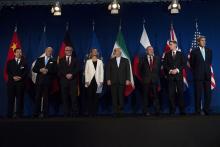
For Christians, Easter is not just a day — it is a season, and, indeed, a way of life. This week is Easter: Monday, Tuesday, Wednesday, Thursday, and so on. Likewise, hope — the message of Easter — is not a feeling, but rather a decision — a choice we make day after day. Hope isn’t easy, but the decision to hope keeps the world going.
Now we have a choice to make: a decision whether to pursue a tough diplomatic process for peace to prevent Iran from developing a nuclear weapon. The United States and Iran — along with the U.K., Germany, France, Russia, and China — now have the beginning framework of a deal that could accomplish just that. But we would have to give it a chance. Much has to be worked out by the June 30 deadline, and it won’t be easy.
Should we give this hope for peace a chance? I believe Christians should answer yes. Here’s why.
1. At Least 10 Religious Groups Have Come Out Against Anti-LGBT 'Religious Liberty' Laws
"While substantial attention has been paid to the lawmakers, athletes, businesses, and celebrities who have challenged the new laws, less has been said about the steady flow of criticism from the exact group these RFRAs are ostensibly designed to protect: people of faith."
2. Stress and Hope in Tehran
On Thursday, the U.S. and Iran along with five world powers reached a preliminary deal that would curb Iran’s nuclear program and address sanctions imposed upon the country. The New York Times offers this glimpse into what those sanctions mean for ordinary Iranians.
3. Outcry Over RFRA Might Be a Fear of Christians
"The outcry isn’t about the law, it’s about us. It’s a fear that we will discriminate. And it is a fear based on a history that, whether we like it or not, is ours. We have, in no shortage of ways, broken relationships with the LGBTQ community. We have expelled our sons and daughters. We have protested them. We blamed them for the ills of society like a scapegoat. And no matter what we believe about same-sex marriage, that is wrong. Because of that, restoring relationship and trust with the LGBTQ community is on us."
4. Why I Won't Wear White on My Wedding Day
"As far as we have come, and as removed from these traditions’ origins as we may be, we are still attached to these remnants of a woman’s worth and identity being grounded in her sexual activity, importantly solely for the purposes of her pleasing a man."

The United States and Iran agreed to a preliminary deal on Iran's nuclear program today, Politico reports. The hotly anticipated deal, following stop-and-start negotiations and vocal concern from Republicans and Israeli Prime Minister Benjamin Netanyahu, will include Iran dismantling two-thirds of its centrifuges and allowing rigiourous inspections by the IAEA through 2035 and beyond. In exchange for Iran's compliance, the U.S. and the E.U. will lift longstanding economic sanctions.
President Obama was optimistic but pragmatic, saying the plan was a "good deal," according to Politico:
"'[It is] a historic understanding with Iran which, if implemented, will prevent it from obtaining a nuclear weapon. I am convinced that if this framework leads to a final deal, it will make our country and the world safer,' Obama said in a statement in the White House Rose Garden. The deal would 'cut off every pathway that Iran could take to develop a nuclear weapon.'
... Obama stressed in particular the inspection and verification aspects of the agreement. 'If Iran cheats, the world will know it. If we see anything suspicious, we will inspect it,' Obama said.
...'If there is backsliding on the part of the Iranians,' he said, 'there will be no deal.'"
The Win Without War coalition called the preliminary deal "huge news" in a statement, also released today:
"At a time when much of the Middle East is engulfed in war, the United States is on the verge of achieving one of our most pressing national security goals without dropping a single bomb. Today's progress towards a comprehensive, historic agreement between Iran, the United States, and our P5+1 partners not only ensures that Iran will not get a nuclear weapon, but it demonstrates precisely how America can win without war."
Details of the plan are anticipated in late June. Read more at Politico.

When Jon Stewart took a hiatus from The Daily Show a little over a year ago to film Rosewater, I’ll admit, I, along with other loyal viewers, was intrigued but skeptical. I was already aware of the story of Maziar Bahari, an Iranian-born journalist for Newsweek who’d been imprisoned and tortured by Iranian officials for nearly four months, detained in part because he’d sat for an interview with The Daily Show’s Jason Jones. But the rumors circulating that the film (based on Bahari’s memoir) would be partly comedic seemed … risky. Far be it from me to question Stewart’s satirical prowess, but films about political prisoners rarely leave room for laughter.
But of course, nobody needed to worry. Stewart’s penchant for pointing out the absurd is what makes Rosewater unique among films of its kind. Where movies like Hunger focus on the brutality of imprisonment (and rightly so), Rosewater’s goal is different. It sets out to explore the personality of people like Bahari’s jailers, the Kafkaesque nature of life in Iran under Mahmoud Ahmadinejad, and the creativity it takes to survive in such a setting.
In the film, Bahari (Gael Garcia Bernal) leaves London, and his pregnant wife, to cover Iran’s controversial 2009 presidential election. He meets and interviews Iranians working for Ahmadinejad’s campaign, as well as those subverting the system and working for change — one scene has Bahari led up to an apartment roof covered with contraband satellite dishes. When there are accusations of fraud after the elections, followed by widespread protests, Bahari is arrested as a foreign spy. He’s held in solitary confinement, and interrogated and tortured by a man known only as Rosewater (so named for the smell of his perfume).
While there are scenes of physical torture onscreen, the film doesn’t show them in graphic detail — to the point where it almost feels that Stewart isn’t going as deep with the subject matter as he could have. But it does something instead that feels far more important.

Thousands of Iranian women are sending photos of themselves without their hijab, or veil, to a new London-based Facebook page dedicated to allowing them “stealthy freedoms.”
The Facebook page — called “Stealthy Freedom of Iranian Women” — was set up by Iranian journalist Masih Alinejad and has attracted almost 150,000 likes.
Alinejad told the Guardian, which first reported about the site, that she has been inundated with messages and photos since launching it May 3.
“I’ve hardly slept in the past three days because of the number of pictures and messages I’ve received,” she told the newspaper.
The photos show women — sans veil — in parks, on the beach, or on the street.

DEALING WITH IRAN is complex for many reasons. This is not a made-up country whose borders were dictated by politicians in the last century; it is Persia—the great empire that fought with Greece before the beginning of the Christian era, the Asiatic power that imperial Rome was never totally able to subdue. From that long history emerged a people with a deep sense of proud history and a realization of national sovereignty that helps guide the destiny of the nation and its peoples.
I recall a conversation years ago with then-Iranian President Mohammad Khatami about nuclear power. He was not in favor of creating weapons of mass destruction, but he clearly promoted Iran’s right to develop nuclear energy for peaceful purposes. To deny this right is an affront to national sovereignty, he argued.
After the unfortunate history of the past government, once again Iran is governed by a president and a cabinet that call for peaceful nuclear development and for a new and more open relationship with the West. This is the fact that has emerged into a clear interim agreement between the so-called P5+1—the members of the U.N. Security Council plus Germany—and Iran. As reported, the goal of ongoing negotiations is to open the door to a 24/7 inspection of nuclear facilities and other guarantees to ensure that Iran will not make nuclear weapons.
The fact that the new president and his foreign minister are talking with the United Nations, and with Western leaders in particular, gives the world a better check on the nuclear ambitions of Iran than we have on any other nation in the region that stretches from the Mediterranean to the Indian Ocean. If in the terrible, and most unlikely, event that a government of Iran should change its position and decide to build a nuclear weapon, the world would know almost immediately because of the security and surveillance that are likely to be part of a permanent agreement. In such an eventuality, it would be possible to reinstitute the former sanctions or even impose more stringent ones.

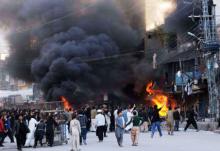
Qadeer Abbasi is recovering from a broken arm in his two-room shanty home not far from the capital, Islamabad.
On Nov. 15, Abbasi, 34, offered noontime Friday prayers at Madrassa Taleem ul Quran when the seminary was attacked by a procession of Shiite mourners. Besides the Sunni madrassa, the Shiites also struck 100 shops, four private banks, and scores of cars.
In less than an hour, 12 people were killed and intense gunfire prevented humanitarian services from ferrying the injured to hospitals.
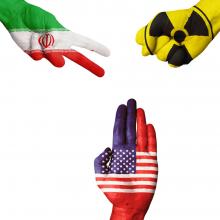
Iranians tend to trust religion far more than they do politics. Accordingly, it could be helpful to formulate a potentially helpful Track Two initiative around Iran’s openness to religion as a precursor to discussing important secular issues. One possibility that comes to mind, especially if the current negotiations lead to further openness, is what one might call a “peace game.” Since Iran has been the focus of any number of war games, this would represent a peacemaking counterpart. However, rather than a scenario-driven exercise as most war games tend to be, a peace game would be more akin to facilitated brainstorming.
The basic concept would call for bringing participants from Iran and the United States together for a week to discuss what the Iranians proposed earlier, i.e. how to overcome the obstacles that stand in the way of a cooperative relationship. Participants for the game would be chosen from the ranks of respected religious, political, academic, and professional figures who (1) are not in government, (2) are known to be spiritually minded, and (3) have views that would command serious consideration by their respective governments. A religious framework for the discussions would be established at the outset, a world-class expert on negotiations would facilitate the “game,” and the final recommendations would be presented to both governments for appropriate consideration.
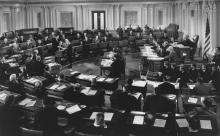
After a decades-long standoff, Iran and the West (plus China and Russia) have signed an interim agreement to halt Iran’s nuclear program in exchange for modest sanctions relief. While some are calling it a historic breakthrough along the lines of Nixon’s visit to China, the U.S. media has been mostly skeptical. And in a rare display of bipartisanship, Congress is already looking for ways to derail the deal by passing legislation to impose new sanctions on Iran and tie the President’s hands for future negotiations. Despite the fact that President Obama has successfully passed tougher sanctions on Iran than any previous administration, the U.S. media in lockstep with Congress continue to thumb their noses at anything that resembles diplomacy when it comes to Iran. And while other U.S. allies in the region — primarily the Gulf States led by Saudi Arabia — have expressed their concerns over this deal, few Americans care about what the Saudis think. As representatives of the American people, what Congress really cares about is what Israel thinks.
That’s where things get dicey.
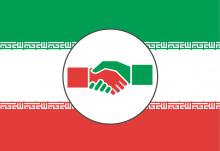
The nuclear deal that the U.S. just struck with Iran is nothing short of historic. This agreement is a victory for everyone who wants to prevent a nuclear-armed Iran and a catastrophic war.
The deal is one of the many triumphs that have resulted from the great American tradition of negotiating with adversaries to advance U.S. interests. President Kennedy's talks with Premier Khrushchev delivered the world from the brink of nuclear war. Ten years later, President Nixon's visit to Mao's China revolutionized the U.S. role in Asia, and the world. A decade later, President Reagan's diplomatic engagement of President Gorbachev achieved historic nuclear arms reductions.
UN weapons inspectors are now on track to peacefully disarm Syria of its chemical weapons because Washington was willing to engage the Syrian regime through diplomacy with Moscow, rather than through Tomahawk cruise missiles. And under the deal reached in Geneva this weekend, Iran will stop advancing its nuclear program for the first time in nearly a decade.
Iran's nuclear program will now be under an expanded inspections regime to help ensure that Iran's nuclear program is used for purely peaceful purposes. In exchange, Iran will receive modest sanctions relief.
Make no mistake: this is a good deal, and it should be protected so that our diplomats have the space to negotiate a final agreement to prevent war and a nuclear-armed Iran once and for all.
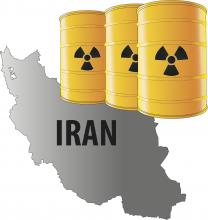
The nuclear agreement with Iran is a triumph of diplomacy. It stops the expansion of Iran’s nuclear program, rolls back some of its most worrisome elements, establishes more rigorous monitoring to guard against cheating, and suspends some sanctions on the Iranian people.
If implemented, this agreement will significantly reduce the potential nuclear threat from Iran and enhance the security of Israel and other states in the region. Secretary of State John Kerry and President Barack Obama deserve credit for supporting the diplomatic effort.
The agreement includes a commitment from the U.S. and its allies to “not impose new nuclear-related sanctions for six months.” This means that the U.S. Senate must defer any further sanctions measures to allow compliance to proceed.
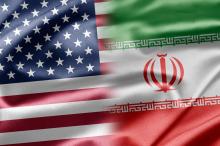
AT LAST, AFTER more than 30 years of isolation since the Islamic Revolution of 1979 overthrew the U.S.-installed Shah, American and Iranian officials are talking to each other. The late September telephone conversation between President Obama and Iranian President Rouhani was an important first step. If the two sides can reach an agreement on ending the nuclear standoff, it could pave the way for other forms of cooperation that could significantly improve regional and global security.
Because of the historical mistrust between the United States and Iran that goes at least as far back as the 1954 CIA-backed coup that overthrew Iran’s democratically elected prime minister, achieving progress will require diplomatic flexibility on both sides. The core objectives of the international community are to prevent Iran from developing nuclear weapons and to guarantee that its nuclear program is solely for peaceful purposes. This can be accomplished by convincing Tehran to accept binding limits on its nuclear program and by robust monitoring mechanisms to guarantee the absence of military-related activities.
Iran’s objectives are to gain international acceptance of its right to develop nuclear energy, including uranium enrichment, and to obtain relief from crippling sanctions. If Tehran takes steps toward accepting limits and agreeing to enhanced transparency and monitoring, Washington should offer an initial partial suspension of sanctions and pledge to lift additional sanctions as progress proceeds. This would help jump-start the talks and strengthen President Rouhani’s hand in the face of hardliners.

PRESSURE IS BUILDING for the United States to become militarily involved in the Syrian civil war. The result would be further bloodshed and destruction for the people of Syria, the worsening of an already grave regional security crisis, and U.S. involvement in another Middle East war.
The Obama administration has apparently decided to provide arms to the rebels. Sen. John McCain and others in Congress are calling for a no-fly zone and air strikes against Syrian government targets. The increased hard line comes in response to allegations that Syrian government forces have used chemical weapons, crossing the “red line” President Obama warned against—although reports have surfaced that rebel forces also may have used chemical weapons.
Concerns about the use of chemical weapons are serious, but they are not a justification for military action that could drag U.S. forces into the deadly civil conflict. Bombing strikes would not be sufficient to neutralize Syria’s vast arsenal of chemical weapons, and they could cause chemical explosions that would release the deadly toxins we seek to contain.
For a military operation to achieve results, it would have to be a large-scale undertaking. Creating a humanitarian safe zone or attempting to impose a no-fly zone would require a major commitment of allied forces and would lead to serious military confrontation with hostile Syrian forces.

Does violence rule our species? The barrage of international conflicts now in the headlines seems to suggest that violence may be the one language we have in common.
Though we all speak it fluently, very few of us learned it in school. We didn’t have to study its “vocabulary” and “grammar rules” – no, it was much easier than that. Humans pick violence up by immersion and so we are all native speakers. From Syria to Korea to Pakistan to Iraq to the U.S., the language of violence is so natural to us that we couldn’t recite one of its “grammar rules."
Sadly, ignorance of language rules does not diminish fluency. The odd thing is that if we stopped to learn the rules governing our fluency in violence, it would actually make us less fluent. Why? Because the rules of violence reveal an unpleasant reality: We don’t use violence; violence uses us.
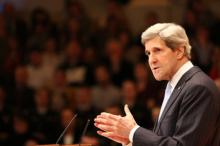
Secretary of State John Kerry is calling for the release of an Iranian-American minister from a Tehran prison, a welcome step for advocates who had accused the State Department of being “AWOL” on the case.
“I am deeply concerned about the fate of U.S citizen Saeed Abedini, who has been detained for nearly six months and was sentenced to eight years in prison in Iran on charges related to his religious beliefs,” Kerry said in a statement released on March 22.
“I am disturbed by reports that Mr. Abedini has suffered physical and psychological abuse in prison, and that his condition has become increasingly dire.”

As an Iranian fighter jet approached a Predator surveillance drone over the Persian Gulf earlier this week, it was warned away by a U.S. Air Force jet escort. The Los Angeles Times reports:
“The incident, which was not disclosed for two days, is at least the third time U.S. and Iranian military forces have faced off over American spy drones in the last 15 months, and it inevitably raised concerns of a more serious confrontation.
“The Obama administration has stepped up military and intelligence surveillance flights near Iranian airspace and moved warships and other military assets to the Middle East in connection with the increasing Western pressure on Iran to suspend its nuclear development program.”
WE SHOULDN'T really expect the Oscars to grasp the point of history, though this year the films nominated for Best Picture are a fascinating snapshot of what ails—and could heal—us.
Zero Dark Thirty takes a clinical view of the search for Bin Laden and has been criticized for its portrayal of torture as effective. To my mind this debate may miss the wider question: Torture is bad enough, but a central assumption about the efficacy and validity of killing for peace—that shooting an old man in his bedroom would solve anything—is worthy of enhanced interrogation.
The point is missed also in the brouhaha about Django Unchained, Quentin Tarantino's thrilling satirical Western. People are up in arms about the comic book violence and use of the N-word—but this is perhaps the most powerful, even indelible, portrayal of the violence of slavery ever made for a mainstream audience. Two wrongs don't make a right, and the revenge arc in this film should be questioned, but Tarantino has done a moral service in not sanitizing his fictionalization of historical memory. Lincoln is the perfect companion piece—I highly recommend you see both. Django Unchained uses B-movie tropes to vastly entertain while confronting the real horrors Abraham Lincoln was fighting to end. Lincoln is a theatrical history lesson that delicately handles the moral authority competitions, language games, and political complexity behind the 13th Amendment.